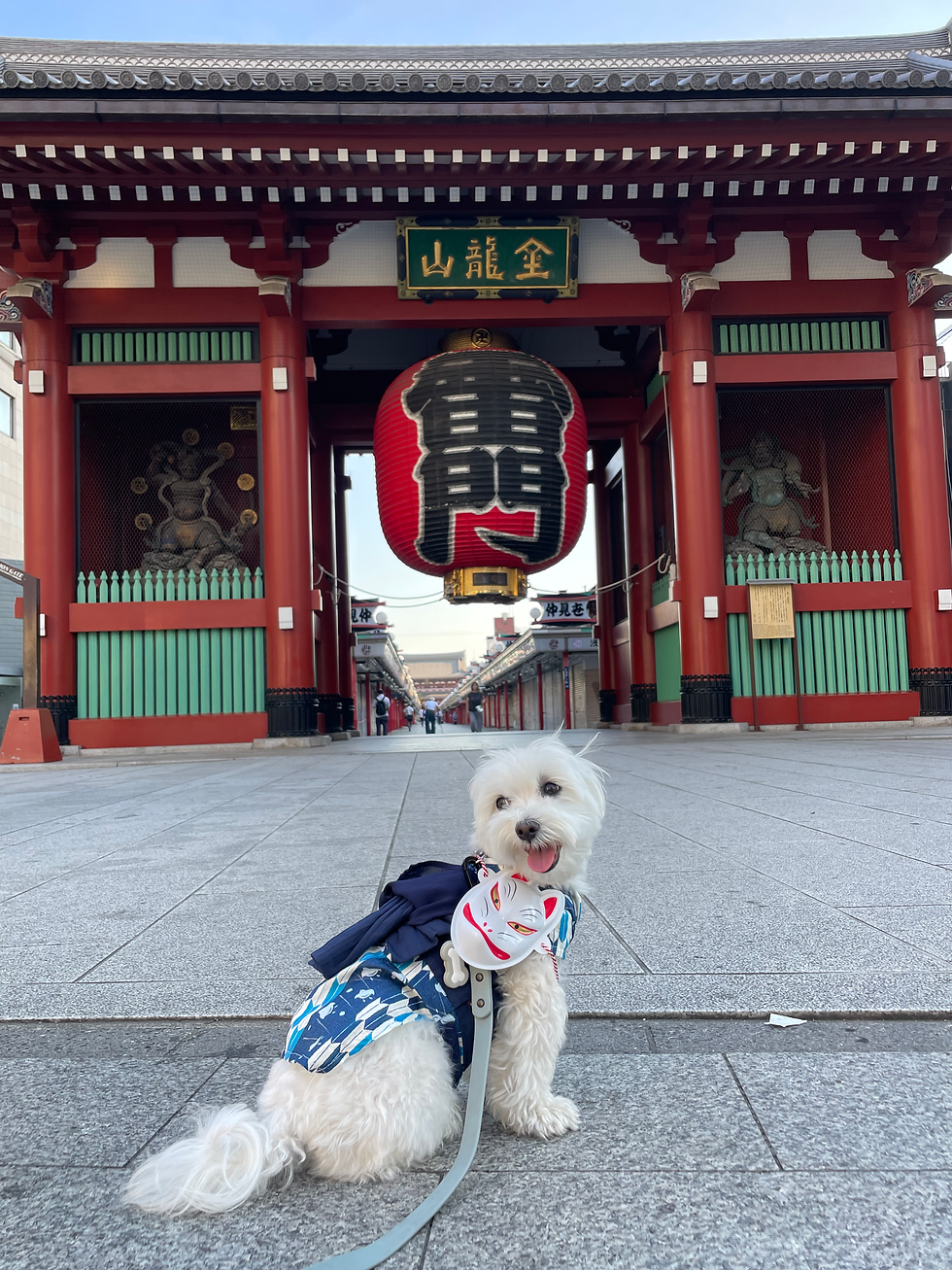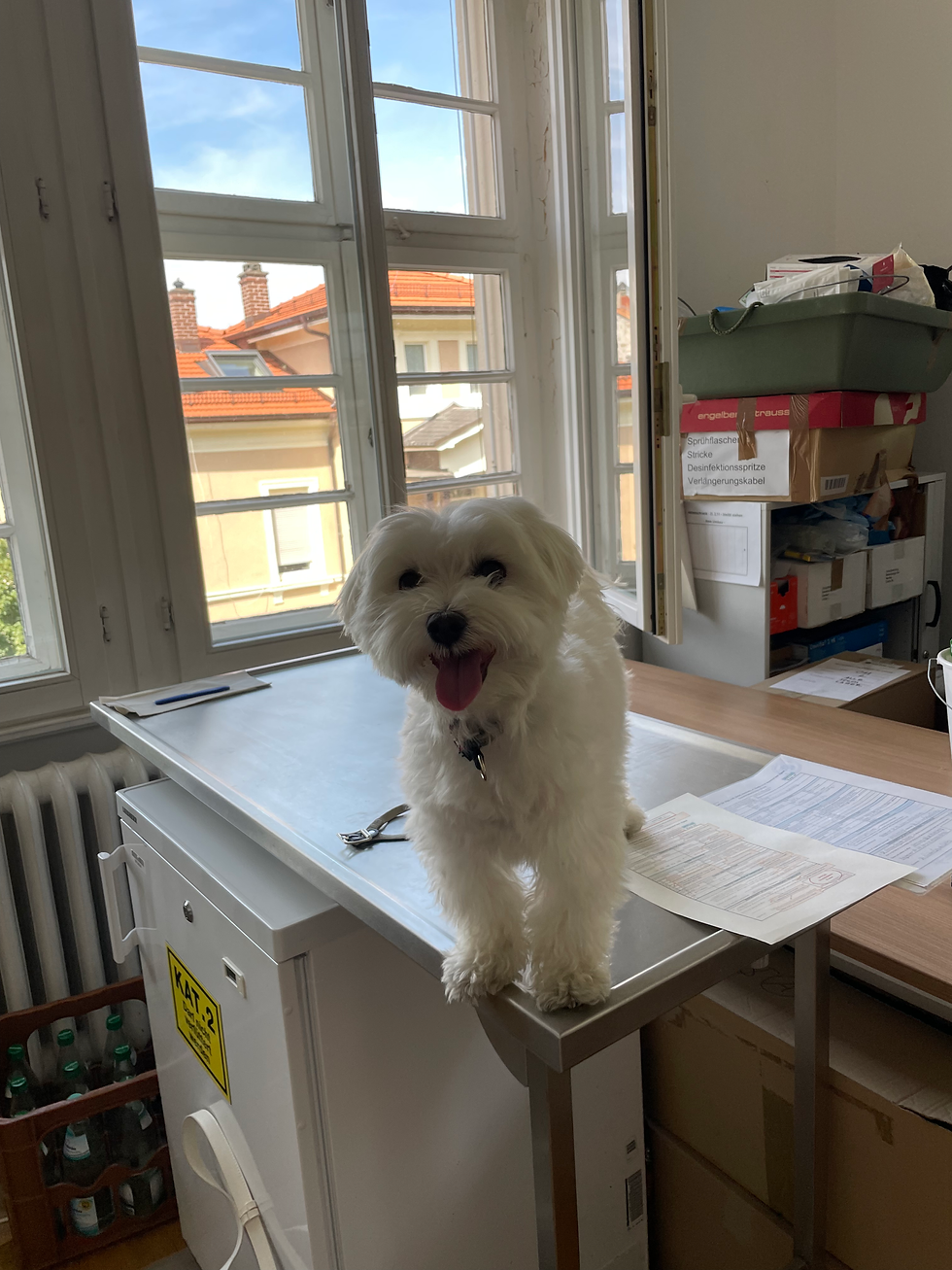How To Bring Your Dog To Japan From Other Country
- Jul 26, 2023
- 3 min read
Updated: Nov 25, 2025
In this blog, we will break down step by step how to bring a dog into Japan and our experience with the entire process. Please advise that the content Tofu shared should only be used as a inspo, it is your responsibility to check on the most updated requirements.
UPDATE: As of December 2024, the applications are now processed through their portal. All the info is the same as described below. To sign up for the portal, please email them first (email address is listed below)

Background info:
We have traveled to Tokyo, Japan five times, flying from Germany, South Korea, and Taiwan.
Tofu is a 4.5 kg Maltese and a trained cardiac alert + psychaitric assistance dog.
It’s important to note that Japan only officially recognizes three types of service animals: guide dogs, hearing dogs, and mobility assistance dogs. All other types of service dogs are considered pets under Japanese law and must follow the country’s pet regulations upon arrival.
The official website where all the info is https://www.maff.go.jp/aqs/english/animal/dog/import-other.html

To bring a dog into Japan, you need at least 180 days of preparation. Import procedures vary depending on the country or region your dog is coming from.
(Source: MAFF – Importing Dogs and Cats)
The process can be broken down into this flow chart:

For dogs from non-designated regions, the requirements include:
Microchip implantation
At least two rabies vaccinations
Rabies antibody test (titer test)
A minimum 180-day waiting period
Advance notification to Japanese authorities

Step 1: Rabies Vaccinations and Antibody Test
After your dog has received two rabies vaccinations, you must get a rabies antibody test. This test must be done through a veterinarian and sent to one of Japan’s designated laboratories. The antibody titer must be ≥ 0.5 IU/ml.
Once the test is complete, you wait at least 180 days before entry. During this waiting period, you should contact Japanese officials to start your import application.
List of the designated laboratories is here. Antibody titer against rabies must be equal to or greater than 0.5 IU/ml.
To contact the Narita airport branch, email is: aqs.nrtr2@maff.go.jp
To contact the Haneda Airport branch, the email is: aqs.hnd@maff.go.jp
You can write to them in English.

Step 2: Japanese Government Application
Japanese authorities will ask for:
Intended date of entry (this can be changed later)
Copy of the rabies antibody test certificate
Application for import inspection form (provided via email)
Form AC (also provided via email)
Important: You must submit advance notice to the Animal Quarantine Service at least 40 days before arrival, even if the 180-day waiting period is complete. Notification can be submitted via mail, fax, or email.

Step 3: Government Veterinarian Appointment
About 7 or 10 days (depend on departure country regulation) before your flight, your dog must undergo a clinical inspection by a government veterinarian and obtain a certificate issued by the government agency.
Tips from our experience:
Contact your local government veterinarian office to schedule the appointment.
Bring all relevant documents: rabies titer certificate, Form AC, vaccination records, and microchip certificate.
The veterinarian will scan the microchip, check your dog’s health, and complete Form AC.
Send a photo of the completed form to the Japanese authorities for verification. This step is crucial; even a minor mistake can result in denied entry.
Schedule your appointment as early as possible to allow time for corrections.

Step 4: Arrival in Japan
Upon arrival:
Deplane and go through customs.
Pick up luggage.
Proceed to the Animal Quarantine Service counter for inspection.
During inspection:
Your dog must remain inside a zipped carrier.
Present all forms and documents.
The staff will scan the microchip.
For us, the inspection took about 30 minutes, and Tofu stayed with me the entire time.

Final Thoughts
Bringing a dog to Japan can feel overwhelming due to the paperwork, procedures, and risk of denied entry. However, it is entirely manageable if you triple-check every document and confirm details with Japanese authorities.
Thanks for reading 🙂
– Tofu & Tiffany




Hello, thank you for the info, this is super helpful!!